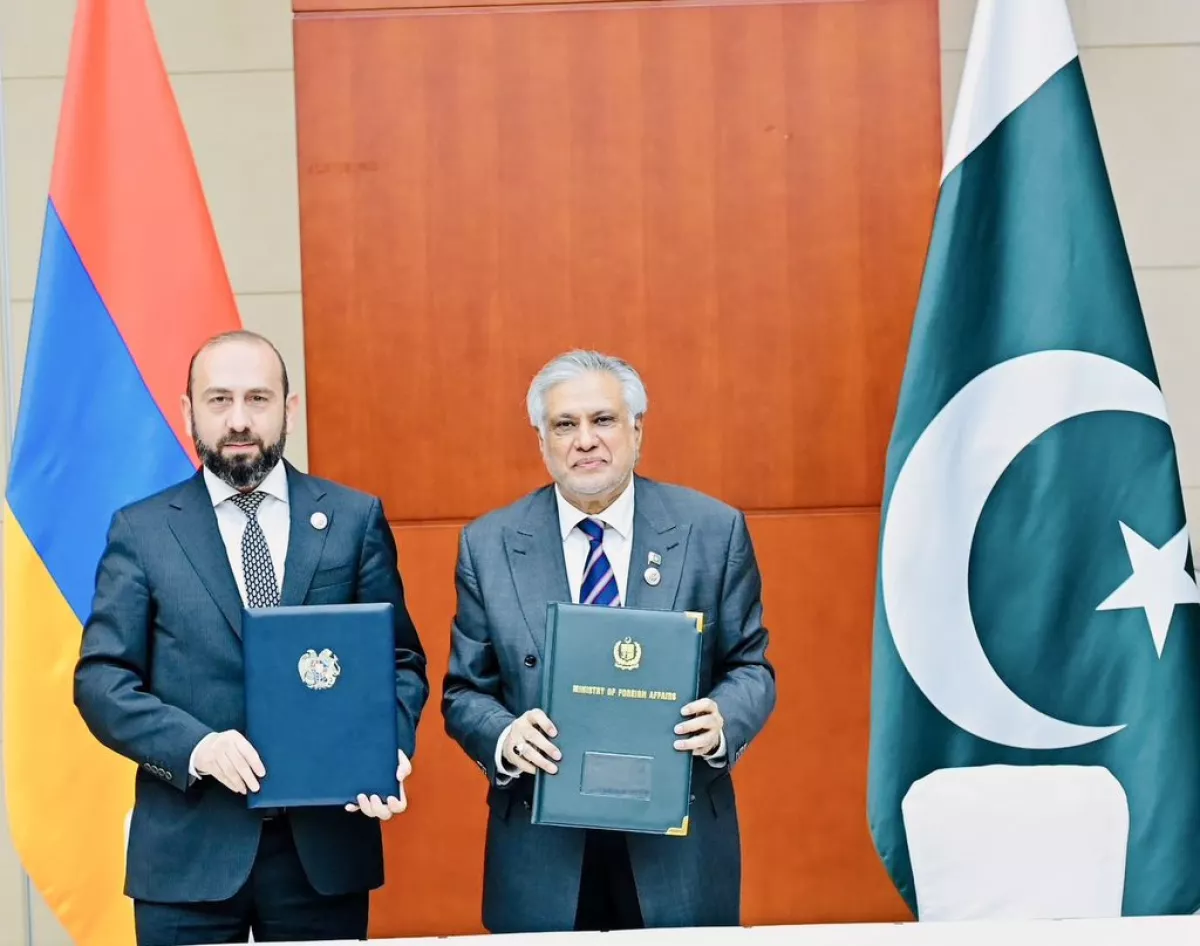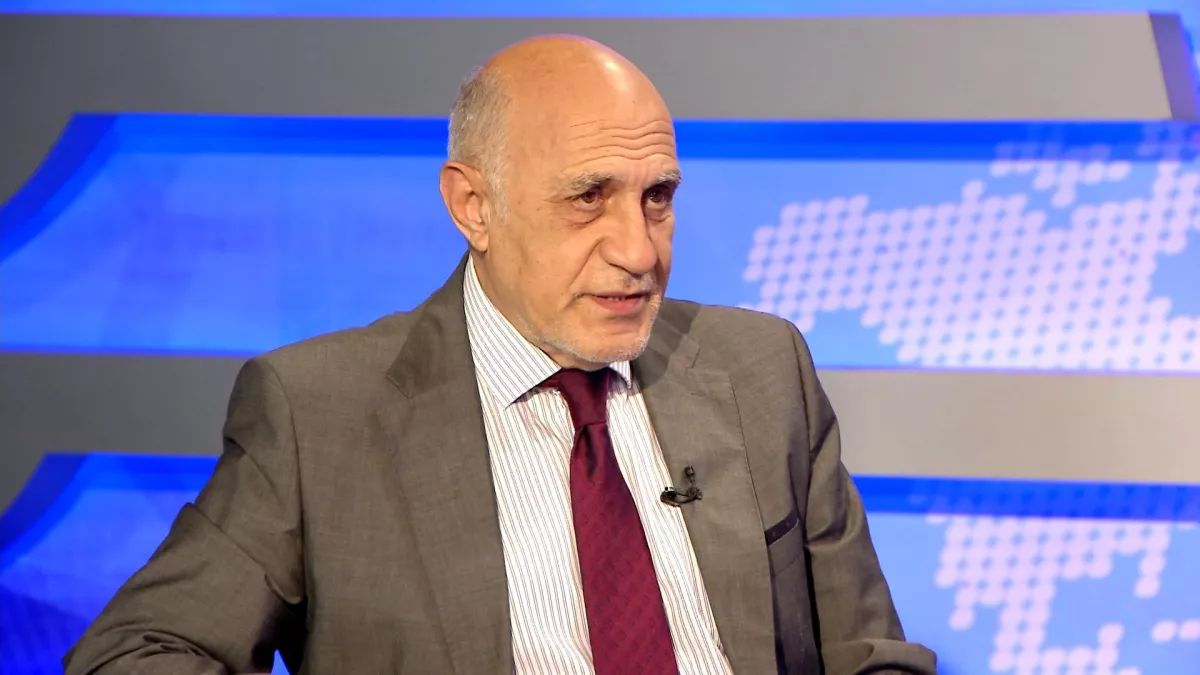Pakistan-Armenia ties signal irreversible peace in South Caucasus Expert opinions on Caliber.Az
Armenia’s Minister of Foreign Affairs, Ararat Mirzoyan, and Pakistan’s Deputy Prime Minister and Minister of Foreign Affairs, Muhammad Ishaq Dar, signed a joint communiqué establishing diplomatic relations between Armenia and Pakistan.

Could this be evidence that peace between Armenia and Azerbaijan has become irreversible? After all, Pakistan had not taken such steps with Yerevan since the collapse of the USSR.
Prominent experts shared their views on this topic in a conversation with Caliber.Az.

Polish analyst from the University of Rzeszów and editor-in-chief of the journal Caucasus: Past, Present, Future, Dariusz Popek, believes that after the return of Karabakh, Baku no longer has either formal or moral grounds to continue military actions.
“Considering that Azerbaijan aims to turn the South Caucasus into an international hub for trade with the East and for the transit of raw materials—both its own and from Central Asia—escalating tensions and threatening conflict would not be advantageous for Baku in relations with potential economic partners.
After regaining the lost territories, the government in Baku decided to pursue economic integration of the South Caucasus countries and, as a result, their overall development. Azerbaijan stands to gain the most from this, given its favourable geographical, economic, and demographic characteristics.
Baku also has other tools to influence Armenia’s policy without using force. Russia will obviously be Azerbaijan’s main competitor in this sphere and has already demonstrated an example of such an approach.
Another player is China, which for decades has been implementing a long-term strategy of integrating markets and transit routes for its goods. Azerbaijan and the entire region aim to become part of this system.
It seems that the Armenian government understands this as well. Coming to power on the wave of the Velvet Revolution, they aimed to de-escalate the conflict with their neighbours in order to reduce dependence on Russia and open Armenia to the world,” Popek noted.
According to him, achieving this was impossible without resolving the Karabakh issue.

“Of course, this process would have taken years to be accepted by Armenian society. However, Russia’s preparation for war in Ukraine accelerated its development.
As a result of Azerbaijan’s full liberation of Karabakh in 2023, the obstacle of a 30-year ‘unsolvable’ conflict between the two countries was removed.
Now, Azerbaijan will evidently use its dominant position in relations with Armenia and Georgia to build a shared economic potential. With political support from Türkiye and economic cooperation with China, this will allow for balanced relations with Russia, whose interests in the region remain deeply entrenched,” the expert concluded.

Political scientist and professor at the West Caspian University, Fikret Sadikhov, noted that the likelihood of Armenia revising the agreement initialled in Washington with Azerbaijan remains due to the instability of power in Yerevan.
“The influence of revanchist forces in Armenia is quite significant, and Pashinyan’s government could always come under their pressure, altering its foreign policy course to the detriment of relations with Azerbaijan. This could also occur under the influence of external actors interested in destabilising Armenia itself.
However, this does not mean that no issues between us have been resolved. An agreement has been reached on the dissolution of the OSCE Minsk Group. Armenia has also committed to amending its constitution, and this process is likely to be implemented.
Despite its allied relations with Pakistan, we cannot dictate Islamabad’s policy towards other countries. Of course, we are grateful that for decades Pakistan did not recognise Armenia, citing the Karabakh issue and effectively recognising Azerbaijan’s territorial integrity,” the professor reminded.
He also noted that Türkiye, for example, still has not opened its border with Armenia or established diplomatic relations.
“Pakistan likely took this step based on expectations of further actions by Yerevan toward normalising relations with Azerbaijan. One would hope that the agreements reached in Washington will be implemented. Otherwise, it would be a blow not only to the interests of Azerbaijan and Armenia but also to the United States, particularly President Donald Trump, who acted as a mediator in these negotiations.
Thus, Pakistan may be acting proactively, guided primarily by its own foreign policy priorities and national interests,” Sadikhov believes.

Political scientist and journalist at Polskie Radio, Jerzy Lichtarowicz, noted that it was the confirmation of the parties’ intention to sign a peace treaty that changed the situation.
“International actors see that peace is likely to be achieved and secured, so each seeks to assert its presence in the region. The South Caucasus is a crossroads of key trade routes and energy supply lines to Europe.
Many countries want to be involved in this process, especially those like Pakistan, which are closer to the region and are, in essence, part of its geopolitical space.
For Armenia, this is also a positive signal: the more relations it has with neighbouring countries, the more confident it will feel. Azerbaijan, in turn, will understand that peace is advantageous, as it opens up opportunities for positive, primarily economic, changes,” Lichtarowicz concluded.








